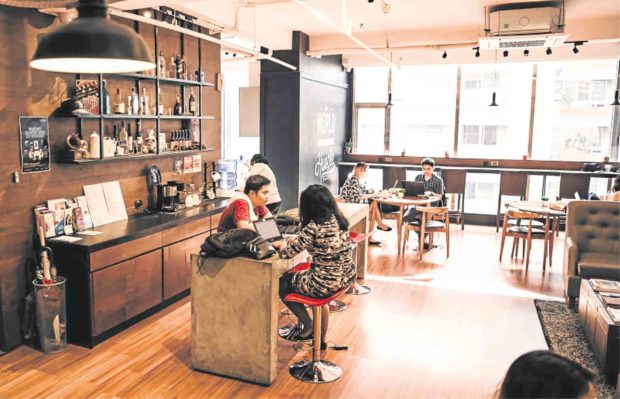
Co-working spaces rising as part of business continuity planning (BCP) solution.
As economic uncertainties arise from the new coronavirus disease (COVID-19) pandemic, an increasing number of businesses are switching from conventional to flexible coworking office space arrangements as part of their business continuity planning (BCP).
This is according to Mario Berta, founder and chief executive of FlySpaces, a leading online marketplace for coworking space in the region.
“The crisis will generate a new number of tenants that will experience flexible office space and its benefits for the first time, and increase the likelihood that those tenants will use it for their permanent office in the future and/or include it in their permanent BCP solutions,” Berta said in a recent commentary titled “COVID-19 vs Coworking: The Impact of this Crisis on Flexible Office Space.”
Berta drew comparisons from the rise of online shopping platforms. “With no other options due to mall closures and quarantine measures, these platforms are experiencing free customer acquisition and growing CLV (customer lifetime value),” he said.
Berta noted a greater number of existing tenants of flexible solutions were extending their current contracts. He noted clients with a three- to six-month contracts, for instance, were extending lease for the whole year but asking for rent reduction as well.
“A great question for the future is how flexible operators will be willing/allowed to fill up their spaces in terms of density? Likewise, until the health crisis is completely gone, how dense can spaces (both conventional and flexible) be for tenants to be comfortable? This is a real topic moving forward as we all know that proximity between the workstations is not the only concern, there are also the common facilities, such as the pantry, meeting rooms, phone booths, etc,” he said.
With social distancing becoming the new norm even if key cities were to lift lockdown protocols, coworking space operations were likewise seen to adjust.
Given the current opportunities, FlySpaces—which has 6,000 flexible office listings across the Philippines, Hong Kong, Singapore, Malaysia, Indonesia and Myanmar—sees more developers aggressively entering this segment.
While a number of developers like Philippines’ Ayala Land (with its own Clock In brand), Singapore’s CapitaLand Ascendas (with Bridge+) and Keppel (with Kloud) already operating their own flexible solutions, Berta said even boutique or smaller developers would be in a rush to enter this space.
“Developers now understand that flexible solutions are here to stay, and with the current economic uncertainty, lots of tenants will prefer to have a flexible only- or mix-use solution (conventional/flexible) ideally in the same building—and these developers are uniquely positioned to offer this solution,” he said.
Berta noted, however, a number of small flexible office space operators that do not have the necessary cash reserves to weather the storm could fold up, unless they manage to renegotiate favorable rental agreements with their landlords and leverage the surge in demand.
On the other hand, some developers were poised to acquire and run the operations of defaulting coworking operators in their buildings, he said. Since they would end up owning the fit-out investments of the operators, they would not have any capital expenditure costs.
“As with most industries, the larger companies are better able to manage the impact, with the top operators in each country where we operate are not facing major cash flow issues,” Berta said, citing Spaces, Regus, KMC, Common Ground and Co-Hive as some of the strongest examples. INQ

